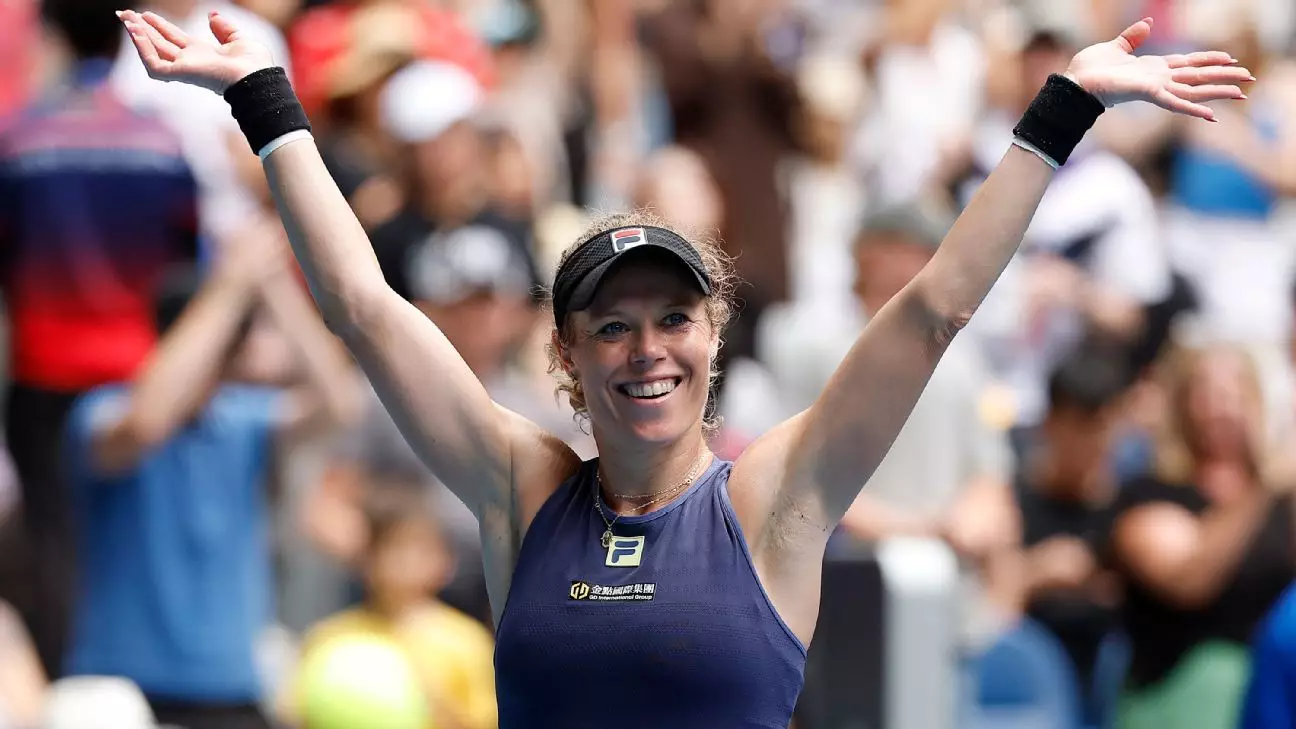The Australian Open holds immense prestige as one of the most anticipated events in the tennis calendar, particularly for players like Qinwen Zheng, who are looking to cement their status following a remarkable previous season. After an impressive 2023 where she clinched the Olympic gold and was a finalist at both the Australian Open and WTA Finals, expectations were understandably high for the young Chinese talent. However, the tale of her early exit in 2024 serves as a stark reminder of the volatility inherent in sports and the need for players to adjust quickly to the pressures and challenges of elite competition.
The match against Laura Siegemund, ranked No. 97 and a veteran player at 36, turned out to be one where Zheng was somewhat outmaneuvered. Siegemund employed an aggressive strategy, forcing Zheng to respond to her pace and power from the moment the match began. Unlike last year’s formidable performance in the tournament, where Zheng displayed mental fortitude and tactical excellence, this match revealed a vulnerability in her game when confronted with intense pressure and a clever opponent. Siegemund’s aggressive play and ability to take control of points disrupted Zheng’s rhythm, indicating a tactical miscalculation from Zheng’s camp.
Compounding the difficulty for Zheng was a controversial time penalty that seemed to unsettle her focus and concentration. During critical moments of the match, Zheng expressed frustration about the chair umpire’s decision, stating that she was not able to see the serve clock clearly. This incident highlights a broader issue often faced by players—external factors that can disrupt performance. Zheng’s struggle with her serve, notably an errant delivery that barely crossed the net, underlined how these distractions can escalate into significant mental blocks. Her admission that she felt ‘distracted’ during the match reveals an internal conflict of striving to maintain composure while grappling with unexpected hurdles.
Zheng’s early exit is emblematic of a shifting landscape in women’s tennis where veteran players still possess the ability to make waves against younger competitors. Siegemund’s victory marks her as the third-oldest player to defeat a top-five player at the Australian Open in three decades, an impressive feat. The depth of talent in women’s tennis today means that past young champions can find themselves challenged by seasoned players who have honed their skills over years of competition. Following her statement about needing to ‘play more than her best tennis,’ Siegemund effectively acknowledges the fierce competitiveness amongst players, regardless of age.
In the aftermath of this defeat, Zheng must regroup and reassess. The pressures of high-stakes matches can be overwhelming, particularly for those unaccustomed to such challenges. Her experience in Melbourne should serve as a crucial learning moment—one where she can identify areas of growth both technically and mentally. Zheng’s ability to analyze her past successes, combined with the lessons from this defeat, will be essential in her quest to reclaim her position among the top players in women’s tennis.
While Zheng’s elimination from the Australian Open serves as a setback, it is crucial to understand that this chapter in her career does not define her journey. With determination and the right adjustments, she has the potential to bounce back stronger. The world of tennis is demanding, but it is also filled with opportunities for redemption. Maintaining resilience in the wake of loss often lays the groundwork for future triumphs. This moment, reminiscent of the trials that all athletes face, may just be the catalyst Zheng needs as she continues her pursuit of greatness in the sport.


Leave a Reply